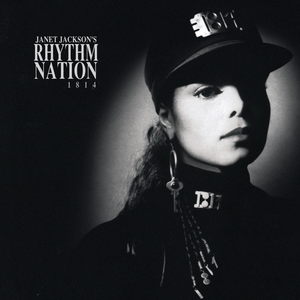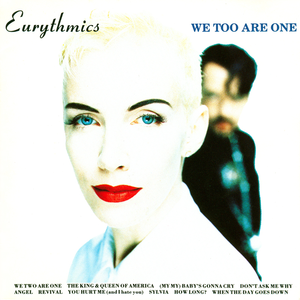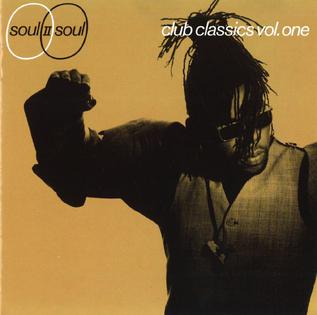(#397: 7 October
1989, 1 week)
Track listing:
Woman In Chains/Badman’s Song/Sowing The Seeds Of Love/Advice For The Young At
Heart/Standing On The Corner Of The Third World/Swords And Knives/Year Of The
Knife/Famous Last Words
“Whatever the dream, I unearth, by work, taxing work, and
even by a kind of prayer, I am sure to find a thumbprint in the corner, a
malicious detail to the right of centre, a bodiless midair Cheshire cat grin,
which shows the whole work to be gotten up by the genius of Johnny Panic, and
him alone. He’s sly, he’s subtle, he’s sudden as thunder, but he gives himself
away only too often. He simply can’t resist melodrama. Melodrama of the oldest,
most obvious variety.”
(Sylvia Plath, “Johnny Panic and the Bible Of Dreams”)
(Sylvia Plath, “Johnny Panic and the Bible Of Dreams”)
Songs From The Big
Chair doesn’t appear in this tale because it was kept at number two by No Jacket Required. Four years, four
producers and nine studios later who should be playing drums on “Woman In
Chains” but Phil Collins. It is best not to dwell on this or many of the other
attendant ironies surrounding this irritatingly unsatisfactory record. “Irritatingly”
because I know, appreciate and understand what Tears For Fears were trying to
pull off, but for me it just doesn’t work.
I rather liked the first two Tears For Fears albums,
despite (or because of?) being told by the music press that they were
terminally unhip; I don’t think the British music press in particular have ever
forgiven them for not being Julian Cope (still, when you put The Seeds Of Love up against the vaudeville
acid baths of the contemporaneous Skellington,
I know which I prefer to listen to). I applauded their urge to fix Joy Division
and Robert Wyatt as two interdependent stars in a unique constellation and the
songs spoke to me in ways that Prince Charles and the City Beat Band and Jason
and the Scorchers didn’t (nothing against those two, by the way; it’s just the
way it was).
You have already heard from Lena about what an impact The Hurting made on the disenfranchised
young Americans of the early eighties who would eventually become Generation X;
here we generally took it as a post-Closer
variant on the old Bobby Rydell nobody-understands-me pop angst which has
appealed to multiple generations. It is also not farfetched to suggest that the
Beatles’ “Help!” leads eventually to “Shout”; if nobody’s going to answer us,
we have to figure out the answer and scream it ourselves.
But with The Seeds
Of Love I suspect that this meant infinitely more to American audiences
than it did to British ones. The sort-of-title song and lead single did better
there (number two on Billboard) than
here (a rather grudging number five; as far as this song’s ambitions are
concerned, it might as well have peaked at number ninety-five) and it is down
to American voices, be they Oleta Adams or Jon Hassell, to electrify the album.
Again, I have to take my hat off to the duo for earnestly
not wanting to repeat their earlier work, though fear that “earnestly” is the
fatal adverb here. From the
Prince-as-Selfridge’s-window-display cover in, I remember wanting this record to be great, a knockout, fuck-you-hipsters
masterpiece.
Above all, I wanted “Sowing The Seeds Of Love” to be a
phenomenally great pop single. But it falls short, so much so that its failure
in itself makes it almost admirable. A dissonant anti-Thatcher rant set against
an all-stops-pulled-out attempt to bring 1967 back, a song which draws some
subtle lines between the utopia of then and the devil-take-the-hindmost
spivvery of 1989 now (the subtext being that the Acid/rave “industry” was at
bottom line Thatcherism taken to its logically illegal conclusion)? What could
go wrong?
It didn’t help of course that British radio was still
commanded by a bunch of people – and also perhaps their audience - desperate to
wind the clock back twenty-two years and who saw “Sowing” as manna from Penny
Lane. But it isn’t just the fact that at this point we had people like Happy
Mondays and the Stone Roses, kids going Radio Rentals to “I Am The Resurrection”
(and “Elizabeth My Dear” is a far more pointed and menacing attack on the
Establishment), in which context the returning TFF seemed almost laughingly old
hat.
Given the involvement of people like Richard Niles and
the opera soprano samples, one could even draw a line between this song and “Left
To My Own Devices.” But the Pet Shop Boys have always sounded like naturals. On “Sowing” you can sense the
duo pulling every sinew, huffing and puffing in the effort to make it work. But
things like the Dukes of Stratosphear don’t sound effortful; songs like “25 O’Clock”
and “You’re A Good Man Albert Brown” simply do the retro-psychedelic thing
better. Likewise, although I know that Nick Nicely sweated and strained for
many months to get “Hilly Fields (1892)” right, on listening to the record he
sounds like he’s being psychedelic without even having to think about it.
Still, this is the only one of eight songs which sticks
in the mind, and I note it’s also the only one of eight songs in which Curt
Smith gets a co-writing credit, as opposed to five songs co-written by Roland
Orzabal with former Ravishing Beauties keyboard player Nicky Holland. Despite
the cover, one frequently forgets that Curt is on the record at all, whereas
its two predecessors were clearly products of two minds working together.
Despite the alleged urge to make a “small”-sounding
album, The Seeds Of Love sounds big
in all the wrong ways; big as in pretentious, over-embellished, laborious,
oxygen squeezed out. The listener may wonder at the supporting cast, most of
whom seem to be drawn from the floating crap game of session players used on so
many of this decade’s number ones – Manu Katché, Robbie McIntosh, Pino Palladino
– with the odd wild card (Peter Hope-Evans, half of Medicine Head, one of TFF’s
true if far less stressed predecessors, turns up playing harmonica on “Third
World”), and the accompanying sub-Gabriel gloss – side two really is a dull
listen – and question whether this is all covering up an absence.
Oleta Adams, who supposedly represented everything TFF
wanted to return or change to, does strikingly well – her entry on “Woman In
Chains” frankly makes you wonder why Orzabal bothered to start singing the
song, and her jazz piano coda to “Badman’s Song” is musically the album’s best
moment – but she’s not there all the time. Elsewhere, things like “Advice For
The Young At Heart” at best got me thinking how much the music sounded like
Nick Heyward’s North Of A Miracle,
but generally this is a grievously over-produced stew.
The preponderance of swords and knives on side two also
got us thinking; Lena reminded me of the Mahjong card game strategy where, if
you pulled a knot followed by a sword or knife, it implied that the knot would
be cut. And so it seems to me that the last three songs of Seeds in particular are less about the state of the world and much
more about a connection being cut, namely that between Roland and Curt. I note
the choreographed staging of peaks in “Year Of The Knife” – all the better for large
stadium crowds, although annoyingly the closing drum eruption is uncredited – following
which “Famous Last Words” slowly dwindles to a faintly ominous drone as Orzabal
sings about the depletion of the ozone layer, saints marching in, etc. (Hassell
briefly reappears, but this is no “Brilliant Trees”), and then the decade, or
the world, or Tears For Fears, ends for good.
Now, I am fully aware that there were young minds,
particularly in late eighties America, who took this deadly seriously and came
to prominence in the following decades. I am aware that influence is not a
simple one-lane highway, that music trends tend to boomerang back into
contention with each subsequent generation; hence the ridiculous suggestion of
Danny Kelly – was that man ever right about anything?
– in his NME review of Big Chair that this was an expensive folly
that would be swept away by an unspecified oncoming tidal wave of musical
revolution (his comparison with 10cc’s The
Original Soundtrack, which certainly has never been swept away or been
forgotten, makes his assertion all the more ludicrous) can be quickly
dismissed.
But it isn’t just that Seeds is over-earnest and over-prepared, that it lacks sparkle or
humour of any kind. Its central problem lies with the fourth of the four bonus
tracks appended to the album’s 1999 CD reissue. This is “Johnny Panic And The
Bible Of Dreams,” originally a B-side to the “Advice For The Young At Heart”
single – and suddenly the album springs into mischievous life. Featuring a
distressed-sounding gospel refrain and the lyrics rapped by one Biti Strauchn,
it actually provides the album with its raison
d’etre, since it very cleverly draws a line between ’67 and ’89 ways of
hearing and feeling, suggesting that one approach is as valid as the other, not
to mention confirming that Orzabal actually knew damn well what time it was. It
sounds as if it had been cobbled together in five minutes and it is genius. Why
it didn’t go on the end of the original album, or why the original album wasn’t
more like this, is not explicable. But then we must remember that the Plath
story in the first instance was about somebody who is driven mad by obsession
with detail, by prioritising the dream over the dreamer.
Next: the second coming of consciousness, or conscience?






